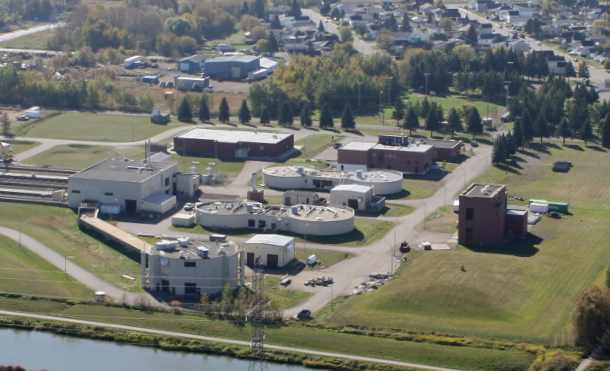THUNDER BAY – The City of Thunder Bay will seek nearly $23 million in financing from Infrastructure Ontario to cover costs from the 2012 flood.
Council approved the step on Monday, with the city still involved in litigation to recover costs it says it’s owed by its insurer, and facing a looming deadline to finance the costs.
The $22.9 million debenture will cover repairs to the Atlantic Avenue water treatment plant incurred during the 2012 floods for which the city has not been compensated.
That represents money the city had already paid through internal cash flows as repairs took place, staff said.
The major flood on May 28, 2012, overwhelmed the Atlantic Avenue wastewater treatment plant, causing sewage to back up into homes and businesses, mainly in the East End.
The total cost to repair the sewage treatment plant was previously pegged at $58 million.
In 2017, the city filed a $31 million suit against the Ontario Municipal Insurance Exchange (OMEX), alleging it was unfairly denying claims for the repair.
As it awaits an outcome in the case, the city faced a deadline to finance its costs.
“This is the final year repair costs are eligible for debenture financing,” said Kerri Marshall, GM of infrastructure and operations. “There is a five year limitation period for a debenture with Infrastructure Ontario from the date when the work was completed.”
The funds from Infrastructure Ontario will be used to pay down an internal debenture the city created when it used available cash flows to cover repair costs, she said, and will be incorporated into the city's short-term investments, said city treasurer Linda Evans.
The city is also the subject of a separate class action lawsuit related to the flood filed on behalf of local residents.
Council approved the debenture alongside an update to the city’s wastewater financial plan Monday.
Created in 2015, the document sets out a path for financial sustainability for the wastewater system, which services an estimated 108,000 residents using over 500 kilometres of sewer, the Atlantic Avenue treatment plant, and four lift stations.
Highlights of the updated plan presented to council include holding surcharge rates stable, capital investment of over $270 million over the next 20 years, and a plan to close the wastewater infrastructure gap by 2033.
The city’s primary goal is to fully recover costs while keeping rates affordable, said director of environment Michelle Warywoda.
The city doesn’t anticipate raising its current surcharge rate, set at 90 per cent of total water costs, though Warywoda cautioned conditions could change.
“From what we’ve reviewed with our capital plans and the funding right now, the 90 per cent is suitable,” she said.
She told council the city’s wastewater rates for the industrial, commercial and institutional sector are “amongst the lowest” in Ontario, while describing residential rates as on the high side of average.
In a report, staff said sewer and water rates are considered affordable when the combined costs are below 4 per cent of median household income.
Those costs are estimated at 1.6 per cent of income, or $1,315, for the median household in 2022, based on 200m3 of water consumption.
Costs for the same volume of water ranged from $902 (Sault Ste. Marie) to $1,762 (Kenora) in other Ontario municipalities in 2021, staff reported.
Sewer surcharges account for over 95 per cent of all wastewater operating revenues.
The city continues to offer water credit programs for those on low income, Warywoda noted.
The city’s annual water consumption for 2022 and beyond is assumed to remain stable at 10.9 million cubic meters.
However, the city projects operating costs will increase due to inflation by 4 per cent in 2023 and in 2024, 3 per cent in years 2025 through 2027, and declining to 1.9 per cent annually after that.
Capital expenses are projected to face steeper inflationary climbs of 10 per cent in 2023, 5 per cent in 2024, 3 per cent from 2025 through 2027, and 1.9 per cent after that.
Under the plan, the city projects it can close the “infrastructure gap” identified for wastewater services in the city’s asset management plan by 2033.
The gap represents the annual shortfall between the amount it would take to fully maintain and replace wastewater infrastructure, and what the city currently spends.
The city will need to bump annual capital spending from $8.1 million in 2021 to around $12.6 million to reach the target.
Increases to water rates will help cover the shortfall, staff said.
Coun. Brian Hamilton questioned if closing the gap by 2033 was too aggressive, saying the city needs to contain costs.
“I would say it’s responsible,” Warywoda replied, noting the plan contemplates no increases to surcharge rates.
The city projects it can build up its wastewater capital reserve to $37.7 million by the end of the plan in 2042, funds that will be reinvested back into wastewater infrastructure
Council voted unanimously to take out the debenture and approve the update to the wastewater financial plan.
Another update on the plan is expected in five years.
